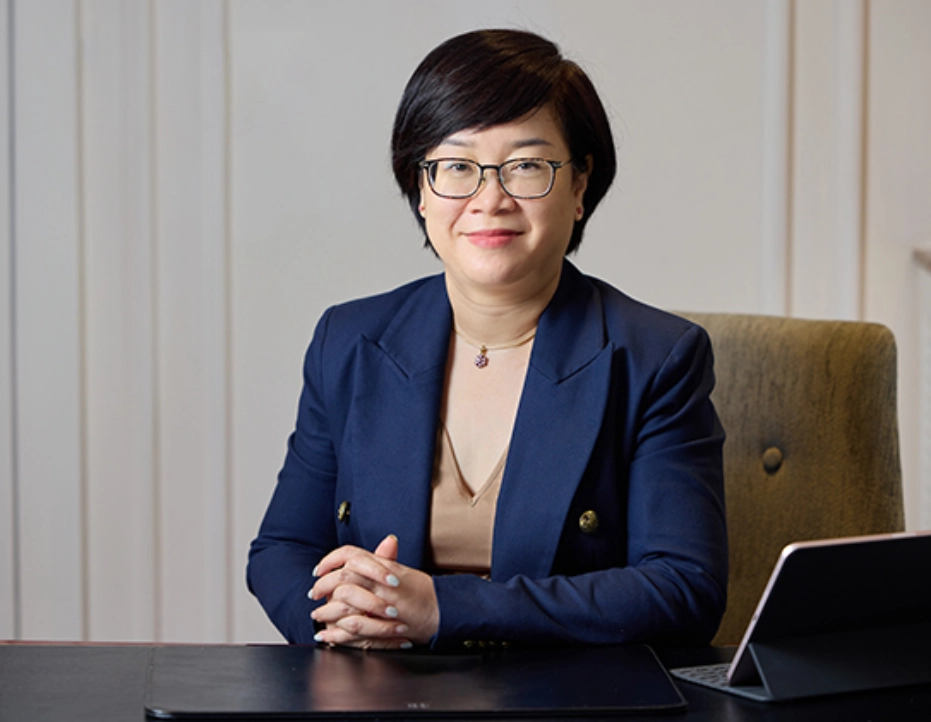Alumni Matters 2024
Get your copy now
I was born and raised in Vietnam. Law appealed to me for the potential it offered. After working for a short time for a US company, I applied to join Freehills, as it then was. Freehills was an interesting law firm, having had offices in Vietnam since the early 1990s. I well remember the process, since I had to go through three rounds of interviews. The first round was an English language test, and there were about 300 people applying, all my former classmates and college friends, such was the demand for the position. I was then interviewed by the then managing partner of Freehills Hanoi, Andrew Messenger. Initially, the local Bar regulations meant we could not practise local law, but after a couple of years that changed, which meant I could offer Vietnamese law.
Vietnam was then in the process of opening up, and it was a very exciting time. The country was transitioning from being a state planned economy to becoming a market economy. There was huge interest in the country, with much inward investment. There were new businesses wanting to set up joint ventures and other forms of business cooperation. Later on, I did litigation and handled one huge case. We were a small office in Hanoi so we did everything, with two foreign lawyers and three local lawyers.
We definitely played a part in the growth of the country. As well as advising clients on deals, we participated in drafting laws and regulations and engaged a lot with government agencies on developing regulations. In fact, we were instructed by the International Finance Corporation (IFC) to advise the government on the country’s first securities law.
They welcomed our advice, and asked for recommendations on international and best practice. We fed back investors’ concerns. While we clearly wanted to represent our clients, in order to be credible we had to understand the government’s position. If they accepted our recommendations, that was fine, but if they didn’t, then they would explain why, so we always had a good dialogue.
Still to this day, of course, Vietnam’s regulatory environment is evolving. We really started from zero, but, in many ways, that gives the country an advantage, because it can learn from others. As the country’s economy has developed so fast, so the regulations have to keep pace, which is not always easy.
I learned everything about practising law from the firm. At the time, the university course in law was very generic. There was no legal professional training. I never really got to grips with the practicalities of law until joining Freehills, everything from writing memos, to researching and understanding the law. Timothy Reinolds, who later took over as managing partner, impressed on me the need for conciseness when writing memos to clients.
As I have said, there were very few of us. We were like a small family. Added to that, originally, our offices were in this wonderful old villa in the city centre.
Yes, I did, in the firm’s Melbourne office. I was there for a year and would have stayed longer, but was asked to return to Vietnam to stand in for the then managing partner, who needed to take medical leave. I then worked for a couple more years before moving to Citi.
After I had my first child in 2003, I realised that I needed a better work-life balance so I could spend more time with the family. I never thought of moving in-house, but that seemed that would be more hours-friendly. Don’t get me wrong, I didn’t mind working hard at Herbert Smith Freehills, including working around the clock quite often because we were so busy and had to serve clients in different time zones, but I needed something different.
In 2000 the office had moved into an international centre. We were on the second floor and Citi was on the first floor, so I got to know them and, in particular, their legal manager. She just had a medical operation and asked if I would be interested to take her role. As it happened, it coincided with Freehills winding down its Vietnam operations, so the timing was good.
I joined Citi as legal counsel. The franchise was then very small. I did legal and compliance work, including chairing the legal and compliance committee under the Banking Working Group, which involved much advocacy with the State Bank of Vietnam. However, Citi was expanding fast, from corporate banking to consumer banking. That involved acquisitions, including considering to acquire a stake in a local bank and then acquiring a stake in a local brokerage, so much of my work revolved around that type of transaction. I also helped set up the consumer business, which included introducing many new products.
In 2021, Citi decided to exit the consumer business in 14 countries. By then, I had become a lot more involved in the business, including serving as the acting CEO of Citi in Vietnam, so I thought moving into business full-time would be interesting.

Thuy Minh Lai
Alumna of Hanoi and Melbourne offices, 1997-2004
As Head of Trade and Treasury Solutions, I cover products and sales, liquidity management, financing, and payments.
Payments involves a lot of systems and processes, which of course consumers are not really aware of. They just want to pay for something and see the money debited or credited from their accounts and appear on their statements! But for the bank, payments is like a clock with so many moving parts, all of which have to lock in seamlessly.
As e-commerce has taken off, the systems and processes have become much more complicated. We have gone from thousands of daily e-commerce transactions to millions! Clients’ businesses are changing, and we have to change our business models to facilitate their business super-efficiently.
Yes, we do, but we take the view that it is better to collaborate with fintech companies rather than compete with them.
I have had to drive a lot of change, and much of it requires thinking outside of the box. Citi has a presence in something like 95 countries, and our customers expect the core banking system to be consistent wherever they are in all of the markets, but, at the same time, we have to comply with local regulations. Getting people out of their comfort zone and adapting to change is certainly a challenge, but I enjoy it. I have a lot of support in the organisation. That is why I have been with Citi for more than 20 years.
I really like living in Vietnam, it is very pleasant. The people are really warm and friendly, easy to get along with. The food is fantastic. It has very beautiful beaches, and there is lots to explore. It is modern and business-focused, but in a hangover from the country being a French colony, people also like to relax! I have two children and they are both studying in the US. My husband and I like to travel, both within Vietnam and outside.
I can thoroughly recommend a visit to anyone thinking of where to go for their next holiday!

Start here
I am privileged to be taking over as a senior alumni ambassador
There has been a transformation in Vietnam’s economy over the past three decades
'US top 40 under 40 lawyer’ Sam Clearwater explores the huge potential of AI
Herbert Smith Freehills takes immense pride in our enduring partnerships with the arts
Reflections from Juliana Warner's 44 years at HSF
Three alumni explore the plethora of ESG considerations businesses are facing
Deep dive into environmental law and his journey to the UN
Stefanie Wilkinson, Global GC of BHP, on managing a cross-country team for a large, complex business
The importance of really knowing your business
HSF’s cyber risk offering: Help around the clock
Maguelonne de Brugiere on the outstanding work of a charity that addresses verbal abuse of children
Helping young people foster skills for their future career
Tara Grossman and Srin Madipalli have struck out into business, with their primary ambition to do good
Benjamin Lohr on what brought him back to HSF
After 30 years on company boards, Nora Scheinkestel imparts wise advice on how to build a career as a non-executive director
The contents of this publication are for reference purposes only and may not be current as at the date of accessing this publication. They do not constitute legal advice and should not be relied upon as such. Specific legal advice about your specific circumstances should always be sought separately before taking any action based on this publication.
© Herbert Smith Freehills 2024
We’ll send you the latest insights and briefings tailored to your needs